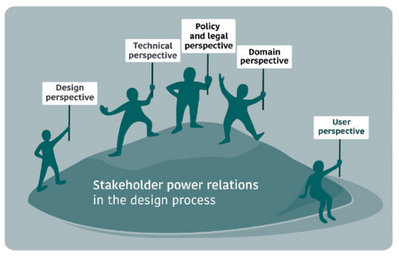Research

We do research because we do want to change society.
To bring about change or to know if something has changed, new knowledge is often needed. We want everyone who is affected to be able to take part in the research.
In order for everyone to be able to participate, we work with methods that enable participation. We have found our basic ideas about how research should be conducted within Participatory Action Research and Participatory Design. Since many of those involved in our research have impairments, we have adapted these methods to be more accessible.
We want our research to be based on democratic and ethical values. On an overall level, this means that we draw on guidance from the UN Convention on the Rights of Persons with Disabilities. As a scientific theory and method, we have found inspiration in Value Sensitive Design.
To be more concrete, we have developed our own ethical framework. You find it under the headline 'about us'
Ongoing research
Right now we are involved in the following research:
- The research program CoDeAc (Co-Design for Accessibility). Within the program, two projects are ongoing: CoDeAc: eHealth and CoDeAc: Covid. It is also within this program that we run SMFOI, Swedes with impairments and the internet. The CoDeAc program is led by Dr Catharina Gustavsson, Center for Clinical Research Dalarna.
- Obstacles and opportunities, a project on electoral participation for people with intellectual impairments. The project is led by Dr Jonas Hultin Rosenberg at Uppsala University.
- Homeless people and smart technology, where we investigate how simple and cheap technology can make things easier for those who are homeless.
- Why is nothing ever changing? Mia Larsdotter's PhD candidate project on how society says to be, in principle, positive towards the thought of people with impairments being able to live like anyone else, but that at the current rate of implementations, it would take like 200 years to get there...
- Intellectual disability and the digital society. In this area of research, we are involved in the European project DigiID Plus and we are doing research on the accessible platform DigiJag.
- Phrase-matched case. How does the line break technology actually work for so-called easy-to-read text?
- ... and much more. We continuesly develope new projects and take on new challenges.
